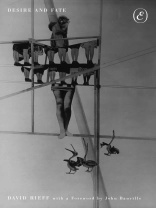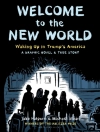At a time when political writing and cultural criticism have come to be dominated by an insipid and unthinking moralism, David Rieff’s essays offer a bracing antidote. As well as being one of the English-speaking world’s most perceptive commentators on global politics, Rieff has in recent years been one of its most courageous and outspoken critics of the pathologies of identity politics – in particular, its grossly simplistic understanding of what it means to belong to a culture or a community, its fundamental failure to grasp the real value of the creative arts, and its increasing disregard for due process and freedom of expression.
The essays that appear in Desire and Fate serve both as a crucial record of and a fierce protest against these developments. Covering topics as diverse as censorship in contemporary publishing, the cultural ubiquity of the notion of trauma, and the future of democracy on a global level, they are all characterised by an incisive intelligence and a refreshing lack of wishful thinking. Together they confirm Rieff’s status as an indispensable writer and thinker.
Sobre o autor
David Rieff is a journalist, cultural critic, essayist, and policy analyst. Beginning in the 1990s, he has reported on wars and humanitarian crises from Bosnia through Rwanda and the Democratic Republic of Congo, Sierra Leone, Liberia, Israel-Palestine, and Iraq and Afghanistan, to Ukraine today. In books including Slaughterhouse: Bosnia and the Failure of the West, At the Point of a Gun: Democratic Dreams and Armed Intervention, A Bed for the Night: Humanitarianism in Crisis, and The Reproach of Hunger: Food, Justice and Money in the 21st Century, Rieff anatomized the liberal pieties of our age: humanitarian action, the human rights movement, and the United Nations system. He has also written on international migration, contemporary Latin America, and, most recently, on the uses and abuses of historical memory in his book In Praise of Forgetting: Historical Memory and its Ironies.












